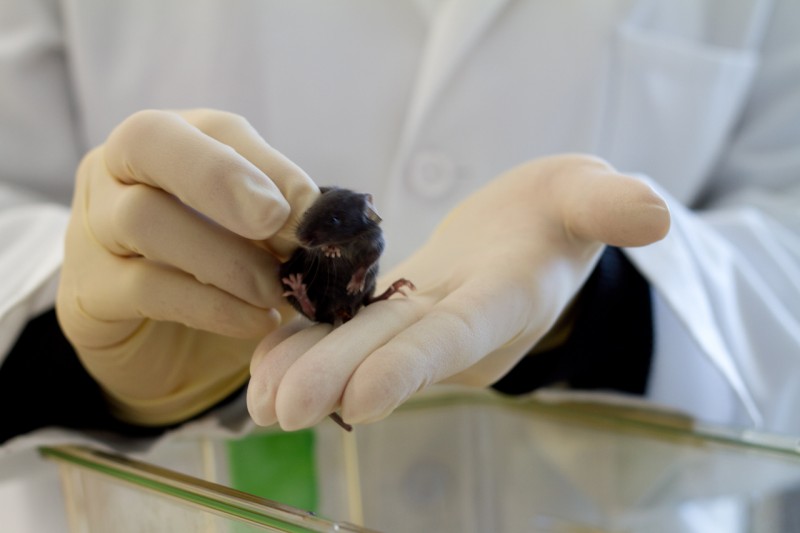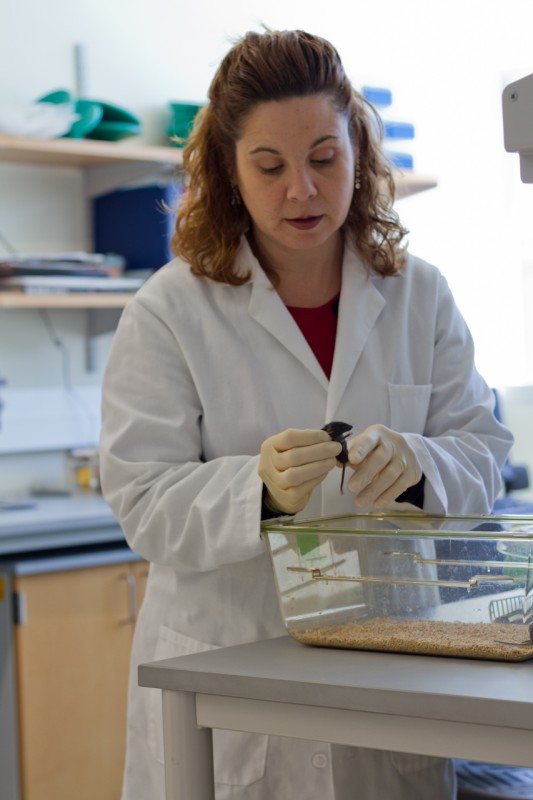
Photo by Randy Rataj
Deep inside the Biology building, Dr. Judy Ochrietor is using mice to conduct research that could lead to major changes in science and medicine.
An associate professor of biology and the biomedical program director, Ochrietor came to UNF in the fall of 2005 and brought this research with her. She has been working on the research with another lab since 1999.
Ochrietor’s research focuses on a protein called Basigin. She uses a special string of mice that are missing this protein. The mice’s rods and cones don’t work, meaning they don’t have the ability to detect light and are born blind. The mice are breeder mice from a strand created in Japan specifically without the protein.

“This gene is something that very few people have heard of,” Ochrietor said. “It’s an indirect way that actually makes the mice blind.”
In these Basigin knockout mice, only small amounts of ingested molecules, such as simple sugars, are able to be delivered to the rods and cones, so they can’t make energy and consequently don’t work. Similarly, in humans with retinal cancer, the person has too much Basigin and too much delivery of the simple sugars, which results in the growth of a tumor on the eye.
Ochrietor’s research currently involves 20 live mice. A small snip is taken from the end of each mouse’s tail in order to determine if it is a Basigin knockout mouse or not. In those that are knockout mice, the retinal tissue has to be harvested, which requires euthanizing those mice. All animal work is checked by an oversight committee on campus.
“Working with a mouse model allows you to translate it to a human situation because you are working with a whole being instead of just a sample or a tissue,” Ochrietor said.
In her research, Ochrietor has found that Basigin affects reproduction. The Basigin knockout mice don’t have the ability to reproduce.
Through research with the mice, Ochrietor also plans to look at infertility in human women, related to Basigin being altered in the human uterus. Ochrietor said the goal is to look at what information this can provide. This might not necessarily lead to a cure for infertility, but possibly a way to treat it.
There are three graduate students and nine undergraduate students helping Ochrietor with her research.
Haaris Zahir, a biology senior, harvests the olfactory to see if it’s affected the same way by the lack of Basigin.
“I joined this research to see if this was an avenue for me,” Zahir said. “I knew it would hone my skills in critical thinking and so I can take that out into the real world.”
Doctors and scientists could potentially use the information on cancer that the research has discovered to reduce the size and progression of retinal tumors. Ideally, Ochrietor will be able to pass her findings on to scientists at the next level who can make a drug to replace Basigin.
Email Taylor Nelson at reporter22@unfspinnaker.com







